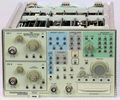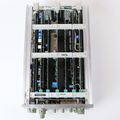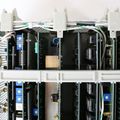7D20: Difference between revisions
No edit summary |
No edit summary |
||
| Line 16: | Line 16: | ||
{{ROM Images}} | {{ROM Images}} | ||
* U200 [[Media:160-1164-02.bin|160-1164-02]] | * U200: [[Media:160-1164-02.bin|160-1164-02]] | ||
* U300 [[Media:160-1165-02.bin|160-1165-02]] | * U300: [[Media:160-1165-02.bin|160-1165-02]] | ||
* U400 [[Media:160-1163-02.bin|160-1163-02]] | * U400: [[Media:160-1163-02.bin|160-1163-02]] | ||
* U500 [[Media:160-1162-03.bin|160-1162-03]] | * U500: [[Media:160-1162-03.bin|160-1162-03]] | ||
* U600 [[Media:160-1676-02.bin|160-1676-02]] | * U600: [[Media:160-1676-02.bin|160-1676-02]] | ||
* U700 [[Media:160-1757-03.bin|160-1757-03]] | * U700: [[Media:160-1757-03.bin|160-1757-03]] | ||
}} | }} | ||
The '''Tektronix 7D20''' is a two-channel digitizing plug-in for [[7000-series scopes]]. It is a triple-width plug-in and provides both vertical and horizontal signals to the scope. | The '''Tektronix 7D20''' is a two-channel digitizing plug-in for [[7000-series scopes]]. It is a triple-width plug-in and provides both vertical and horizontal signals to the scope. | ||
Revision as of 05:56, 4 April 2022
The Tektronix 7D20 is a two-channel digitizing plug-in for 7000-series scopes. It is a triple-width plug-in and provides both vertical and horizontal signals to the scope.
Key Specifications
| Bandwidth | 0–70 MHz (DC), 10 Hz–70 MHz (AC) |
|---|---|
| Rise time | < 5 ns |
| Sampling Rate | 40 MSps |
| Resolution | 8 bit |
| Deflection | 5 mV/Div to 5 V/Div (1–2–5) |
| Input impedance | 1 MΩ // 20 pF |
| Time base |
|
| External clock | < 10 kHz |
| Memory | 2 × 455 cells (alternating) analog / 1024 words digital |
| Features |
|
| Weight | 3.9 kg (8.5 lb) |
Internals
The 7D20 uses an analog shift register (CCD) for high-speed signal acquisition, and then digitizes the stored analog signal at a lower speed (see Patent US 4527117A). This design allowed the 7D20 to capture single-shot events at 40 MSamples/s even though this exceeded the speed of ADCs of the time. The 7D20 can digitally store waveforms and has a GPIB interface. A microprocessor (68B09) in the plug-in controls most of its functions.
The analog waveforms that are sent to the 7000-series mainframe are generated by vertical and horizontal DACs. The DACs outputs can be calibrated for scaling and shift so that signals are accurately displayed on the oscilloscope screen.
The 7D20 has a "roll" mode that emulates a paper roll chart, as if the waveform were being drawn by a pen on the right side of the screen while the paper is being moved to the left at a constant rate. No equivalent to "roll" exists in analog scopes. The Tektronix 2212/2216, 2220/2221/2230 and possibly others also have this feature.
The 7D20 can give NVRAM errors that are often easy to fix.
Links
- 7D20 page @ amplifier.cd
- EB5AGV's Tektronix R7603 / 7D20 page - 7D20+R7603 Repair Report
- Another 7D20 repair
- 7D20 @ barrytech.com
Pictures
-
-
-
-
-
7D20 picture from manual
-
7D20 picture in 7603 mainframe, from manual
-
-
-
-
-
-
-
-
-
Custom ICs used in the 7D20
| Page | Model | Part nos | Description | Designers | Used in |
|---|---|---|---|---|---|
| 155-0196-00 | 155-0196-00 | 155-0196-00 | trigger | 455 • 7D20 | |
| 155-0217-00 | M55D | 155-0216-00 • 155-0217-00 | variable-gain transconductance amplifier | Roy Hayes • Einar Traa | 335 • 475 • 7D20 • FG504 |















